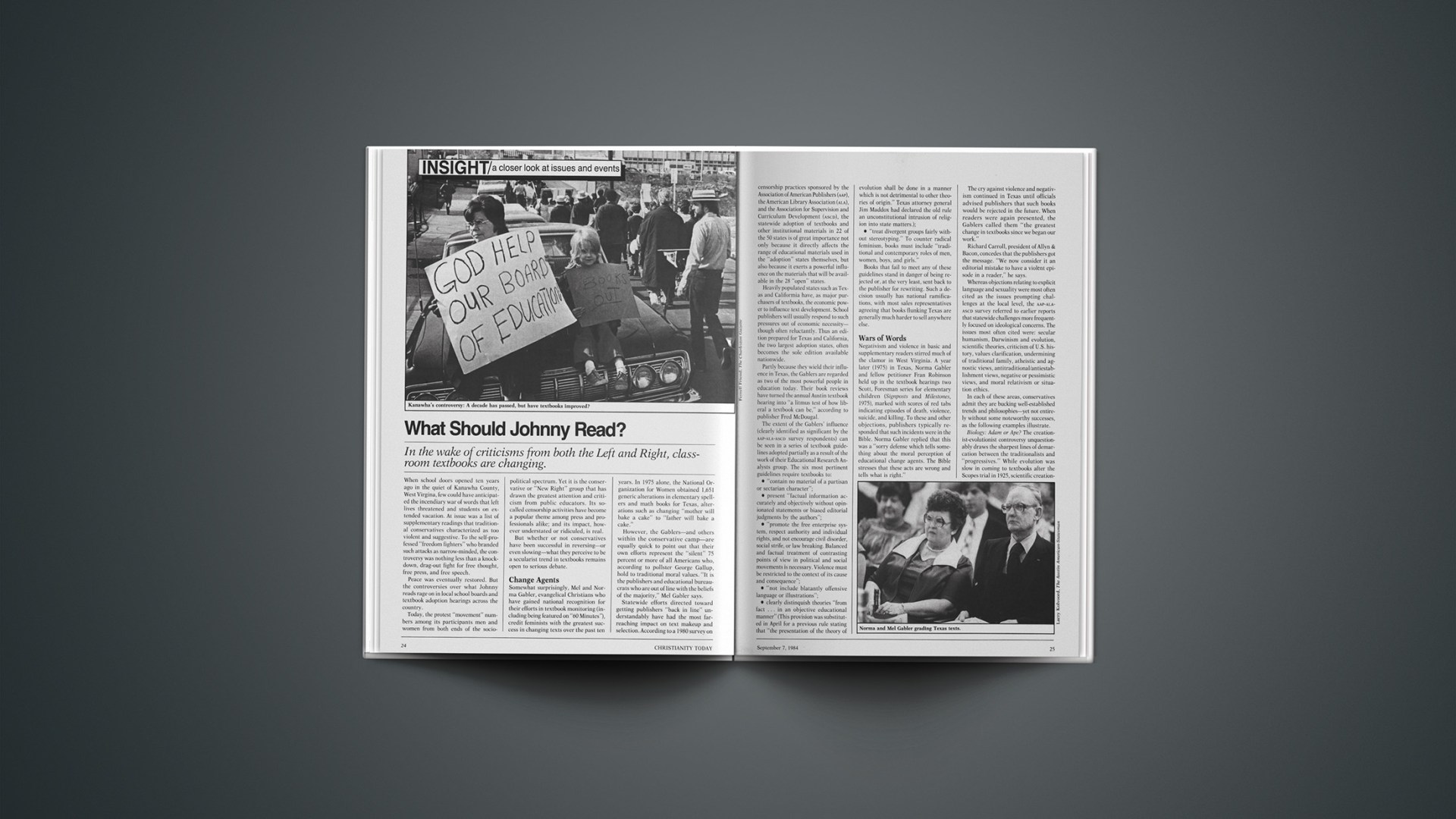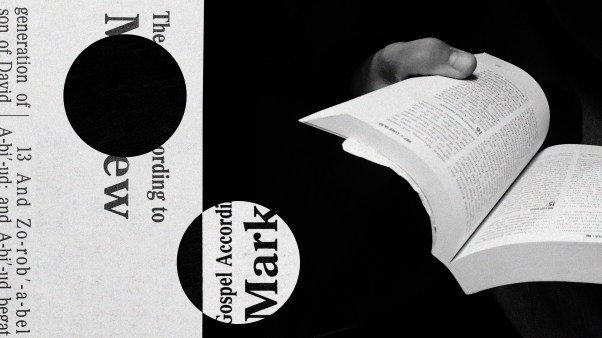When school doors opened ten years ago in the quiet of Kanawha County, West Virgina, few could have anticipated the incendiary war of words that left lives threatened and students on extended vacation. At issue was a list of supplementary readings that traditional conservatives characterized as too violent and suggestive. To the self-professed “freedom fighters” who branded such attacks as narrow-minded, the controversy was nothing less than a knockdown, drag-out fight for free thought, free press, and free speech.
Peace was eventually restored. But the controversies over what Johnny reads rage on in local school boards and textbook adoption hearings across the country.
Today, the protest “movement” numbers among its participants men and women from both ends of the sociopolitical spectrum. Yet it is the conservative or “New Right” group that has drawn the greatest attention and criticism from public educators. Its so-called censorship activities have become a popular theme among press and professionals alike; and its impact, however understated or ridiculed, is real.
But whether or not conservatives have been successful in reversing—or even slowing—what they perceive to be a secularist trend in textbooks remains open to serious debate.










